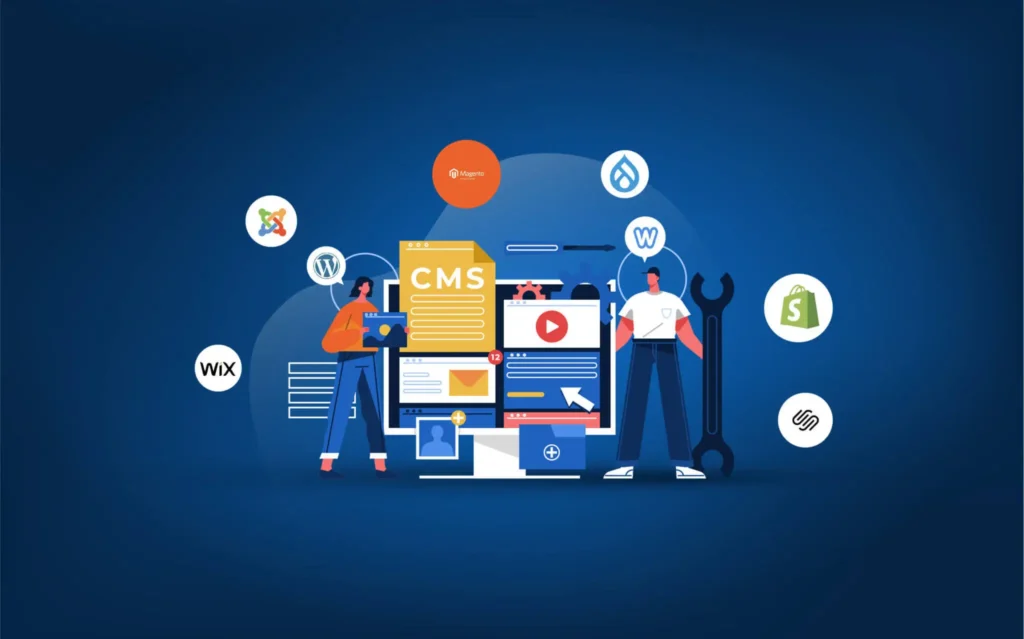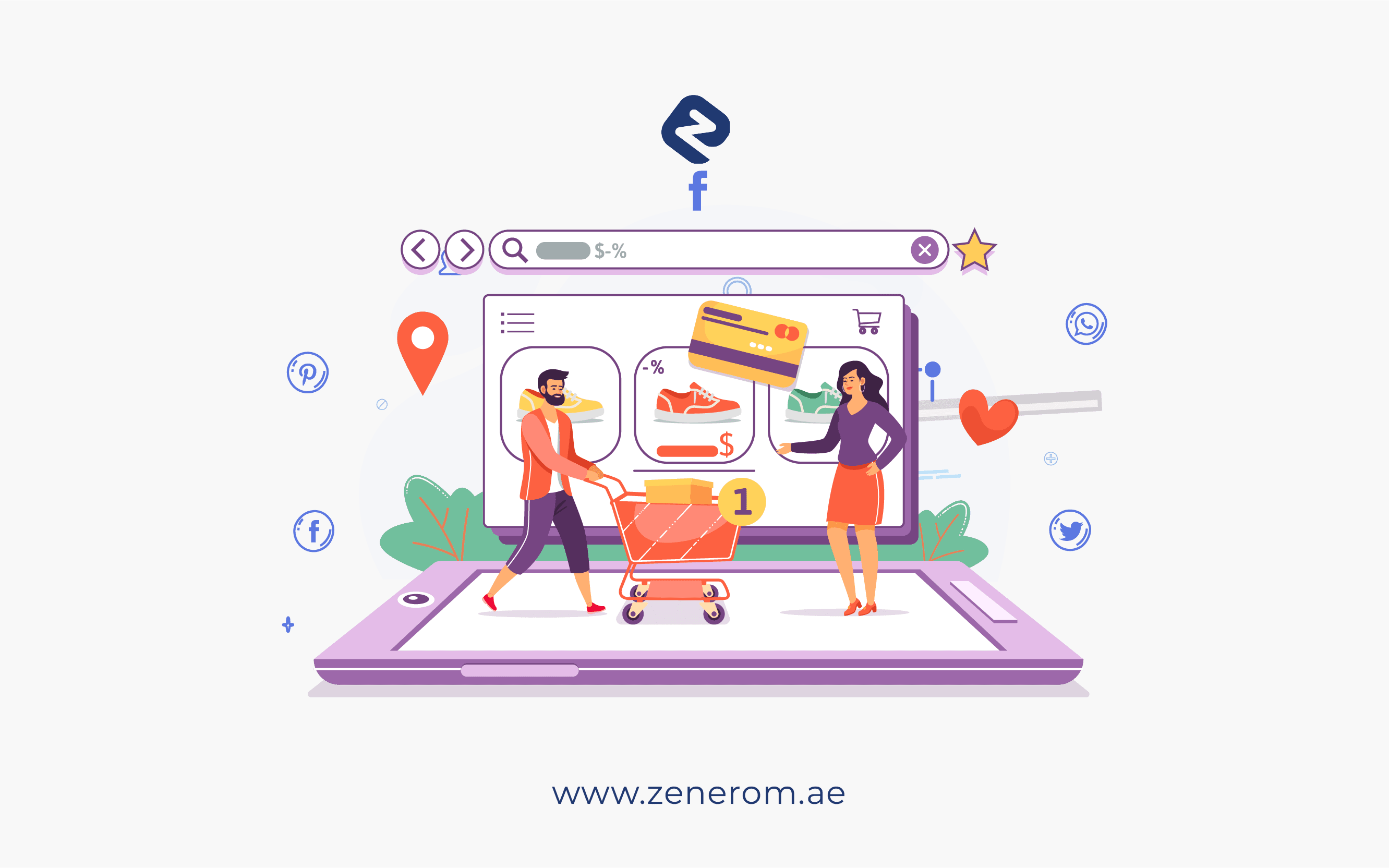Choosing the right platform for website development is crucial for the success of your online presence. With plenty of options available, it’s essential to select one that aligns with your specific needs, goals, and technical expertise. This article, provided by the best website development company in Dubai, will guide you through various website development platforms, highlighting their strengths and ideal use cases to help you make an informed decision.

1. WordPress
Best for: Versatility and Flexibility
WordPress is the most popular website development platform, powering a significant portion of all websites on the internet. Its extensive range of themes and plugins makes it incredibly versatile, suitable for blogs, business websites, ecommerce stores, portfolios, and more.
Pros:
- User-friendly interface
- Extensive customization options
- Large community support
- Thousands of plugins and themes
- SEO-friendly
Cons:
- Requires regular updates and maintenance
- Can be resource-intensive
Optimal for beginners to advanced users who need a flexible and scalable platform, offering extensive customization and a vast community for support.
2. Wix
Best for: Ease of Use and Quick Setup
Wix is a cloud-based website builder known for its drag and drop simplicity. It allows users to create visually appealing websites without any coding knowledge, making it perfect for small businesses, portfolios, and personal websites.
Pros:
- Intuitive drag and drop editor
- Wide variety of templates
- Integrated SEO tools
- Built-in hosting
Cons:
- Limited customization compared to other platforms
- Can become expensive with premium features
Ideal for users who want a quick, easy, and visually appealing website without delving into code, featuring intuitive drag-and-drop tools and a variety of customizable templates to suit any project.
3. Shopify
Best for: E-commerce
Shopify is a dedicated e-commerce platform designed to help businesses build and manage online stores. It offers a comprehensive suite of tools to handle products, payments, and shipping.
Pros:
- Robust e-commerce features
- Easy to set up and manage
- Secure and reliable
- 24/7 customer support
- Integration with various payment gateways
Cons:
- Transaction fees unless using Shopify Payments
- Limited customization without coding
Preferred by entrepreneurs and businesses focusing on selling products online, offering robust e-commerce features, secure payment options, and seamless integration with various third-party apps to enhance online sales and customer experience.
4. Squarespace
Best for: Design and Aesthetics
Squarespace is renowned for its beautiful, professionally designed templates. It’s an excellent choice for creatives, such as photographers, artists, and designers, who want a visually stunning website with minimal effort.
Pros:
- High-quality design templates
- User-friendly interface
- Mobile-optimized designs
- Built-in SEO and marketing tools
Cons:
- Less flexibility compared to WordPress
- Can be more expensive for e-commerce
Perfect for creatives and businesses that prioritize design and aesthetics, providing high-quality templates, intuitive design tools, and built-in SEO features to showcase your brand with style and functionality.
5. Joomla
Best for: Advanced Users and Developers
Joomla is a powerful content management system (CMS) that offers greater flexibility and functionality compared to some other platforms. It’s suitable for complex websites, including social networks and e-commerce sites, but it does require more technical knowledge.
Pros:
- Strong content management capabilities
- Flexible and scalable
- Extensive user management options
- Large selection of extensions and templates
Cons:
- Steeper learning curve
- Requires regular updates and maintenance
Tailored for developers and users with technical expertise seeking a robust CMS, offering extensive customization options, powerful content management capabilities, and a thriving community of developers and users for support and innovation.
6. Weebly
Best for: Simplicity and Small Business Websites
Weebly is another user-friendly website builder that offers a simple drag-and-drop interface. It’s ideal for small businesses and personal websites, providing a straightforward way to build a professional looking site without extensive technical knowledge.
Pros:
- Easy to use
- Affordable pricing plans
- Good selection of themes
- Built-in SEO and e-commerce tools
Cons:
- Limited customization options
- Less powerful than some other platforms
Ideal for users seeking a simple and cost effective way to create a basic website, featuring an intuitive drag and drop interface, affordable pricing plans, and essential tools for building and managing a professional online presence with ease.
7. Drupal
Best for: Complex and High Traffic Websites
Drupal is a highly flexible and powerful CMS suitable for complex and high traffic websites. It’s used by many large organizations and enterprises due to its robust features and scalability.
Pros:
- Extremely flexible and customizable
- Strong security features
- Handles large amounts of data and traffic
- Extensive module library
Cons:
- Steep learning curve
- Requires technical expertise for setup and maintenance
Preferred by experienced developers and organizations needing a highly customizable and secure platform, with strong community support, advanced security features, and flexibility to create complex websites and applications tailored to specific requirements.
8. Magento (Adobe Commerce)
Best for: Advanced E-commerce
Magento, now part of Adobe and known as Adobe Commerce, is a powerful e-commerce platform designed for businesses
looking to scale their online stores. It offers extensive features and customization options for creating a sophisticated shopping experience.
Pros:
- Highly customizable
- Scalable for large e-commerce stores
- Extensive range of features and extensions
- Strong community support
Cons:
- Requires technical expertise
- Can be expensive to set up and maintain
Ideal for large e-commerce businesses and those planning significant growth, offering extensive customization capabilities, scalability to handle high traffic, and a robust ecosystem of extensions for advanced features and integrations.
9. Headless CMS Options (Optional)
Headless CMS solutions like Contentful or Prismic are gaining traction for their unique approach to content management. They offer a separation between the back-end content creation and the front-end presentation, allowing for greater flexibility in delivering content across various platforms (websites, mobile apps, etc.).
Pros:
- API-driven content delivery
- Flexibility for omnichannel content management
- Scalability and future-proof architecture
Cons:
- Requires more development expertise
- May have a steeper learning curve
Developers building complex websites or mobile apps requiring a flexible content management system often opt for headless CMS options like Contentful or Prismic, known for their robust APIs and scalability across multiple platforms.
Conclusion
By carefully considering your needs and choosing the most suitable platform, you can establish a strong online presence that effectively meets your goals. Whether you need the versatility and flexibility offered by WordPress, the ease of use and quick setup provided by Wix, or the dedicated e-commerce features of Shopify, each platform has its own unique strengths. Squarespace excels in design-focused websites, making them perfect for creatives, while Joomla caters to advanced users and developers looking for a robust CMS.
Weebly offers simplicity for small business websites, and Drupal supports complex, high traffic sites requiring extensive customization. Magento (Adobe Commerce) is ideal for advanced e-commerce needs and large online stores.
Additionally, headless CMS options like Contentful and Prismic provide flexible content management across multiple platforms, making them suitable for complex website or app development.
Your web development company can be a valuable resource in navigating these choices and guiding you towards the platform that best aligns with your vision and goals. By selecting the right platform, you ensure that your website is not only functional and user-friendly but also capable of growing and adapting to your evolving needs.
At Zenerom, a leading Digital Marketing Agency in Dubai, we are dedicated to helping you make the right choice. Contact us today to discuss your project and discover how we can create a powerful online presence tailored to your unique needs. Let’s build something amazing together!



